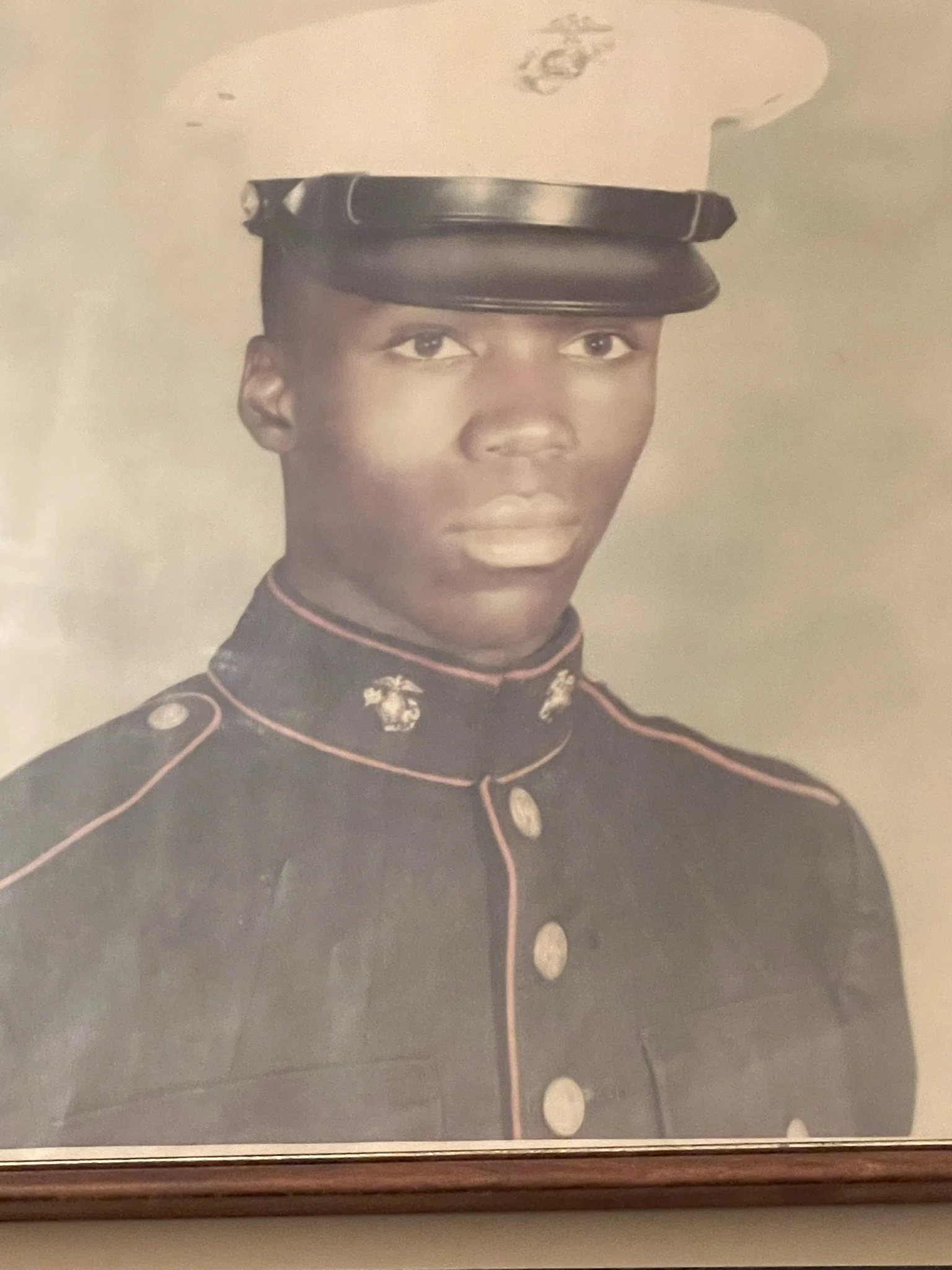Home To Teach The Story
It was prophesized that Sgt Cooks Would Make it Home Alive From Viet Nam. But Then He Was Thrown into Several of the Worst Battles Of The War—A War That He Legally Should Never Have Been Engaged In
By Raoul Dennis
Things were off kilter for the young Albert Cooks and his family far before the war in southeast Asia. Even before he was born. All his life Cooks heard the story of how his grandfather’s land was taken from the family due to eminent domain. He says the loss set in motion a lack of options for his family that created a negative domino effect on the family’s economic standing.
Cooks, whose mother gave an uneasy birth to him at age 16 on March 23, 1945 and whose father lost his sight by the time he was 37, learned early that he would have to step up.
“I had to start doing a lot of things and helping my mother to help make ends meet because he couldn't get nothing but Social Security, and that wasn't paying a whole lot of money,” Cooks said.
But growing up in Fairmont Heights, he had gifts that were helpful.
“I attended Fairmont Heights High School got into the academic program, and I ran track and I also sang in the choir,” he says.
I completed Maryland Eastern Shore, Maryland State College in 1967. In 1967, I ended up teaching at Bethune Junior High School,” he explains. And then things went south. “In 1968, I got drafted. Everybody said, ‘You're a certified teacher. That should be no problem [to get out of].’"
But the one person who could qualify Cooks’ exemption didn’t do so, he says and he found himself on a bus on the way to Fort Bragg, North Carolina.
“I should have been deferred, it should have been no problem because certified teachers were drafted, you could volunteer as a teacher, but you shouldn’t have been drafted. That should have been my choice. I didn’t get that choice,” Cooks says.
“When I got to Vietnam, I ended up in the Fourth Infantry Division, and that was located in Pleiku in the Central Highlands,” he says. It was within his first weeks there that a local photographer known to him only as Papa San took his photo and shared a prophetic exchange with Cooks: “Papa San took three pictures of me, and put two in my hand, and he said the father, son of the Holy Ghost, and that if nobody else made it from over there, that I would be one of the ones that would. That I would be spared to come back and teach the young people the story.”
Months later, Cook first came in contact with the V-100 armored vehicle—the tank on wheels that he says saved his life. Nearly half a dozen of the vehicles had been delivered to the base. And when he got the chance, Cooks jumped in one of them.
“Fortunately for me, when my grandfather lost his farm, the white boy whose people took our land taught me how to drive a Ford tractor. That became really valuable to me because when I saw the V-100, I got in it, it was very, very close to the way the four-tractor operated,” he said.
When Cook’s commanding officer demanded an explanation and came to learn Cook’s complete story, he decided the young Maryland teacher should not only operate the vehicle, but teach others and lead the group. According to Cooks, the officer decided to give the soldier who’d lost so much, a break. Through the violence and carnage of the ensuing battles, Sgt. Cook determined that he owed his life to that favorable decision.
“That saved my life in essence because it’s an armored vehicle,” he says. “I had protection in those battles while other people were being cut down,” he says describing places like Dakto, Kontum and what came to be known as Hamburger Hill.
Today, at 79, Cooks says the prophecy came true: “God took care of me. I’m here.”
Since his return in 1970, Cooks resumed his work as a teacher/adminstrator, raised a family all while struggling through PTSD and maintaining a therapist to cope with it. He remembers being verbally attacked, spat upon and ostracized as a Viet Nam Veteran when he never asked to be there in the first place.
“This country treated the Vietnam vets like dogs, I mean really nasty,” he says. “The commanding officer told us that we should take off anything that said military [after arriving back in the States], and don't tell anybody that we were Vietnam vets. That's a shame, because we were. Most of the guys were drafted over there. They didn't have a choice.”
*********
Vietnam Veterans Day commemorates the sacrifices of Vietnam veterans and their families and is part of a national effort to recognize the men and women who were denied a proper welcome upon returning home more than 40 years ago.
The Vietnam War Veterans Recognition Act, signed into law in 2017, designates March 29 of each year as National Vietnam War Veterans Day.
Most states celebrate “Welcome Home Vietnam Veterans Day” on March 29 or 30 of each year. Though there is some debate, March 29 is generally viewed as a more appropriate date. On that day in 1973, the last combat troops were withdrawn from Vietnam and the last prisoners of war held in North Vietnam arrived on American soil. It is also the date President Nixon chose for the first Vietnam Veterans Day in 1974.









